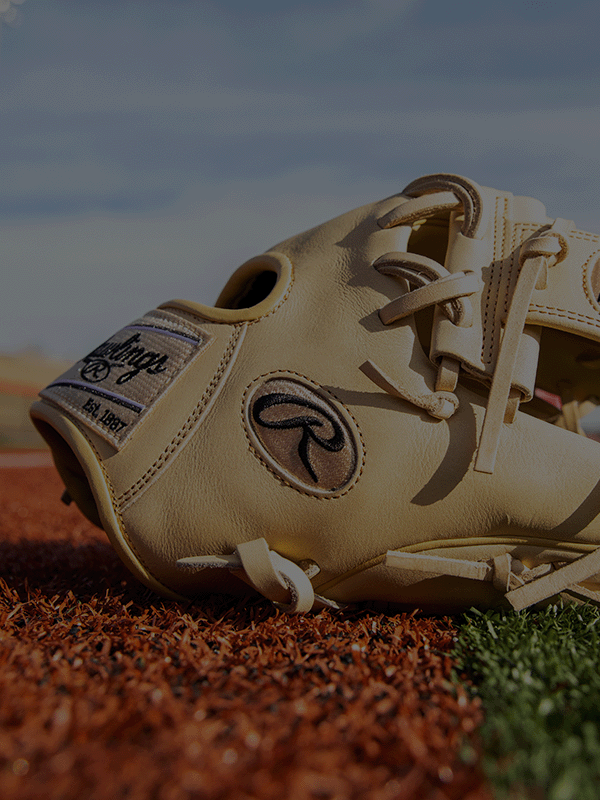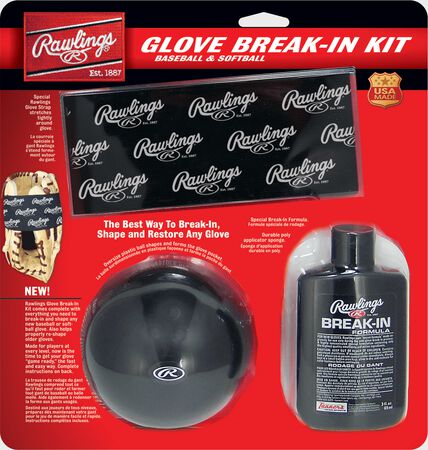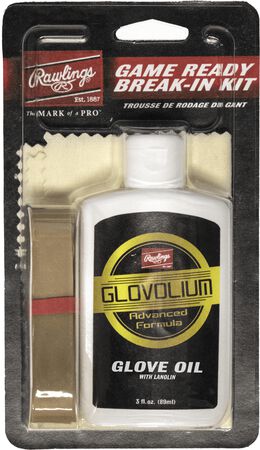We’ve all been there: You’ve just bought an awesome new gamer and you’re psyched to hit the field and make some plays, but there’s one problem.
Your new glove is stiff as a board.
It can be frustrating – and a little scary – to break in a new glove.
You’re always eager to show off the new leather, but if you rush the process, you might pay the price. Breaking in your glove incorrectly can result in a loss of durability, an awkward feel on your hand, or missed potential for a high-performing glove that brings out the best in your game. That’s why it’s important to get it right.
There’s lots of advice out there for how to break-in a glove, including some pretty kooky shortcuts. (Please do not run over your glove with a car.) Here’s the hard truth: Breaking in a glove the right way takes a little patience. However, if you understand the process and you can get the results you’re looking for, then breaking in a glove can be a rewarding – and even enjoyable – experience.
Here’s what you’re going to do:
1. Work the Padding
When you’re breaking in a glove, what you’re really doing is loosening the leather, laces, and padding so they can move and bend easier. With that in mind, the first thing you’re going to want to do is focus on the places where your glove is most stiff. In most patterns, that will mean the two “hinges” near the heel of your glove.
Using both hands, grab the heel of your glove by each side and alternate twisting the thumb and pinky down and in. When you pull the pinky down, the top of the finger should touch the bottom of the thumb, and vice versa.
This technique helps ease the tension of the fibers inside the glove padding, creating a more flexible fit.
2. Soften the Leather
After you’ve loosened the padding, you want to focus on the leather. Premium leather can feel stiffer because of its fuller, tighter grain, which is why our high-end models, like Heart of the Hide and Pro Preferred, can take longer to break-in. You can help this by using a light coating of Rawlings Glovolium Leather Treatment Oil to soften your glove.
A light touch is key here. Do not saturate the glove with oil, and make sure that the leather is still offering resistance when you try to push and pull on it.
NOTE: This step is where some “shortcuts” are introduced. We do not recommend steaming, boiling, baking, or otherwise heating up your glove, nor do we recommend using other “oily” products like petroleum jelly to soften the leather. In some cases, these techniques can damage your glove and impact your warranty.
3. Begin Forming the Pocket
This is where you can start to have some fun with your break-in. You can shape your pocket based on position, style, or any other personal preference. To start with, place a baseball in the pocket of your glove and fold it closed. Secure your glove with rubber bands and let it rest in a cool, dry place for a day or so. This will help your glove conform to the shape of a baseball more easily.
From there, you can begin adjusting the shape of your pocket by playing “hand catch,” or throwing a baseball into the pocket and closing it in the form that feels most comfortable to you. If you want a wider, shallower pocket, this is also where you can begin lightly bending the thumb and pinky of your glove to form a flare.
4. Play Catch (Over and Over and Over and Over)
This is the really fun part. The best way to get your glove in playing shape is to play with it. As soon as you can close your glove easily enough to play catch, you should get a partner and start throwing as much as you can. As you play catch, the oils from your hands will continue softening and loosening the inner lining and padding. The impact of the ball will continue shaping the pocket, and the opening and closing of your glove will loosen the leather in all the right spots.
5. Maintain Your Glove
If you take care of your glove, it’ll take care of you. Keep your glove in perfect break-in form by inspecting the laces every six months and replacing them as needed. Always store your glove in a cool, dry place with a ball in the pocket when not in use. After every season or so, apply a light treatment of Glovolium to maintain the quality of the leather and prevent brittleness. If you treat your glove right, you can even pass it down to the next generation someday!
The Best Way to Break In Your Glove
One of the beautiful things about baseball is that it’s a sport that moves at its own pace. Nobody knows exactly how long an at-bat, inning, or game is going to last, which makes it like a personal surprise every time you hit the field.
Did You Know That Bats Needs to Be Broken-In As Well?
Bats are a vital part of a ballplayers ability to compete day-in and day-out. But bats needs just as much love as gloves do, when it comes to making sure they are game ready!
Learn about what it takes to keep a bat feeling hot with our How to Break in a Bat blog:







